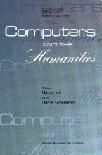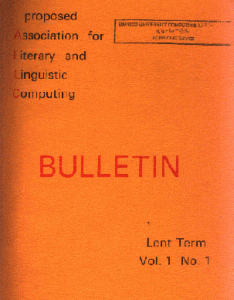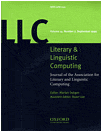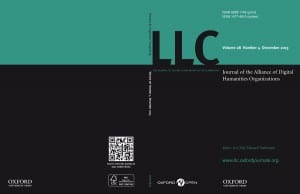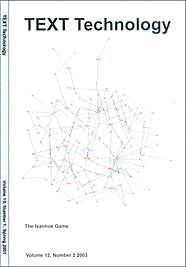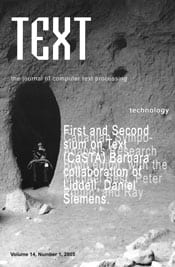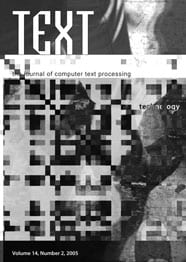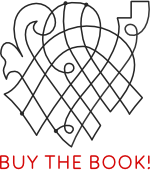Print Design
There has been a long history of publishing in Humanities Computing, and then Digital Humanities. But what do the choices of print design say about the discipline? Here we collect the front covers of both journals and books, showing how people have decided to portray the use of computing in humanities teaching and research. We have not asked permission to show these graphics here: if you believe you are the copyright holder and would like us to remove the image from this list please do let us know, but we will point to where the material can be used or purchased, as we try to gather together an understanding of how Digital Humanities has been defined through print design. If you have any other ideas of material that should be featured here please do let us know, and we will be working at getting larger and better quality images on here in due course.
Journals
Computers and the Humanities (1966-2004)
ALLC Bulletin (1973-1985) – ALLC Journal (1980-1985)
Literary and Linguistic Computing (1986- ) – LLC. The Journal of Digital Scholarship in the Humanities (2005- )
Text Technology
Human IT (1997- )
Books
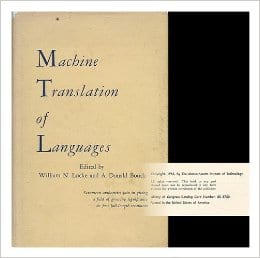 W.N. Locke and A.D. Booth (eds) (1955). Machine Translation of Languages: Fourteen Essays, Cambridge, Mass.: Technology Press of the Massachusetts Institute of Technology.
W.N. Locke and A.D. Booth (eds) (1955). Machine Translation of Languages: Fourteen Essays, Cambridge, Mass.: Technology Press of the Massachusetts Institute of Technology.
 E.A. Bowles (ed.) (1967). Computers in Humanistic Research: Readings and Perspectives, London: Prentice Hall.
E.A. Bowles (ed.) (1967). Computers in Humanistic Research: Readings and Perspectives, London: Prentice Hall.
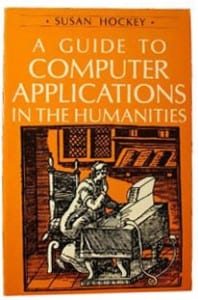 Susan Hockey (1980). A Guide to Computer Applications in the Humanities, London: Duckworth
Susan Hockey (1980). A Guide to Computer Applications in the Humanities, London: Duckworth
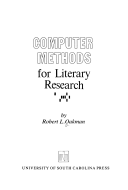 Oakman, R.L. (1980). Computer Methods for Literary Research, Columbia: University of South Carolina Press.
Oakman, R.L. (1980). Computer Methods for Literary Research, Columbia: University of South Carolina Press.
 K. de Smedt, H. Gardiner, E. Ore, T. Orlandi, H. Short, J. Souillot and W. Vaughan (eds) (1999). Computing in Humanities Education. A European
K. de Smedt, H. Gardiner, E. Ore, T. Orlandi, H. Short, J. Souillot and W. Vaughan (eds) (1999). Computing in Humanities Education. A European
Perspective, Bergen: University of Bergen.
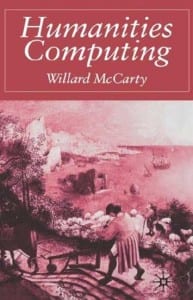 W. McCarty (2005). Humanities Computing, London: Palgrave.
W. McCarty (2005). Humanities Computing, London: Palgrave.
 D. Buzetti, G. Pancaldi and H. Short (eds) (2004). Augmenting Comprehension. Digital Tools and the History of Ideas. Proceedings of a conference at Bologna, 22–23 September 2002, London: Office for Humanities Communication
D. Buzetti, G. Pancaldi and H. Short (eds) (2004). Augmenting Comprehension. Digital Tools and the History of Ideas. Proceedings of a conference at Bologna, 22–23 September 2002, London: Office for Humanities Communication
 S. Schreibman, R. Siemens, and J. Unsworth (eds) (2004). A Companion to Digital Humanities, Malden, MA/Oxford/Carlton, Victoria: Blackwell Publishing.
S. Schreibman, R. Siemens, and J. Unsworth (eds) (2004). A Companion to Digital Humanities, Malden, MA/Oxford/Carlton, Victoria: Blackwell Publishing.
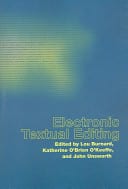 John Unsworth, Katherine O’Brien O’Keeffe, and Lou Burnard (eds.) (2006), Electronic Textual Editing. New York: Modern Language Association of America.
John Unsworth, Katherine O’Brien O’Keeffe, and Lou Burnard (eds.) (2006), Electronic Textual Editing. New York: Modern Language Association of America.
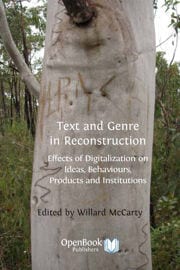 Willard McCarty (ed.) (2010), Text and Genre in Reconstruction. Effects of Digitalization on Ideas, Behaviours, Products and Institutions. Cambridge: Open Book Publishers.
Willard McCarty (ed.) (2010), Text and Genre in Reconstruction. Effects of Digitalization on Ideas, Behaviours, Products and Institutions. Cambridge: Open Book Publishers.
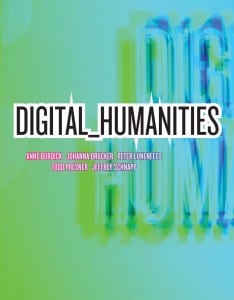 Burdick, A., Drucker, J., Lunenfeld, P., Pressner, T. and Schnapp, J. (2012). Digital_Humanities, Cambridge, MA: MIT Press.
Burdick, A., Drucker, J., Lunenfeld, P., Pressner, T. and Schnapp, J. (2012). Digital_Humanities, Cambridge, MA: MIT Press.
 Gold, M.K. (ed.) (2012). Debates in the Digital Humanities, Minneapolis: University of Minnesota Press.
Gold, M.K. (ed.) (2012). Debates in the Digital Humanities, Minneapolis: University of Minnesota Press.
 C. Warwick, M. Terras, and J. Nyhan (eds) (2012). Digital Humanities in Practice, London: Facet Publishing/UCL.
C. Warwick, M. Terras, and J. Nyhan (eds) (2012). Digital Humanities in Practice, London: Facet Publishing/UCL.
 Brett D. Hirsch (2013). Digital Humanities Pedagogy: Practices, Principles and Politics. Cambridge: Open Book Publishers.
Brett D. Hirsch (2013). Digital Humanities Pedagogy: Practices, Principles and Politics. Cambridge: Open Book Publishers.
 Melissa Terras, Julianne Nyhan & Edward Vanhoutte (eds.) (2013). Defining Digital Humanities. A Reader. Farnham: Ashgate Publishing, 2013.
Melissa Terras, Julianne Nyhan & Edward Vanhoutte (eds.) (2013). Defining Digital Humanities. A Reader. Farnham: Ashgate Publishing, 2013.
 Close
Close



